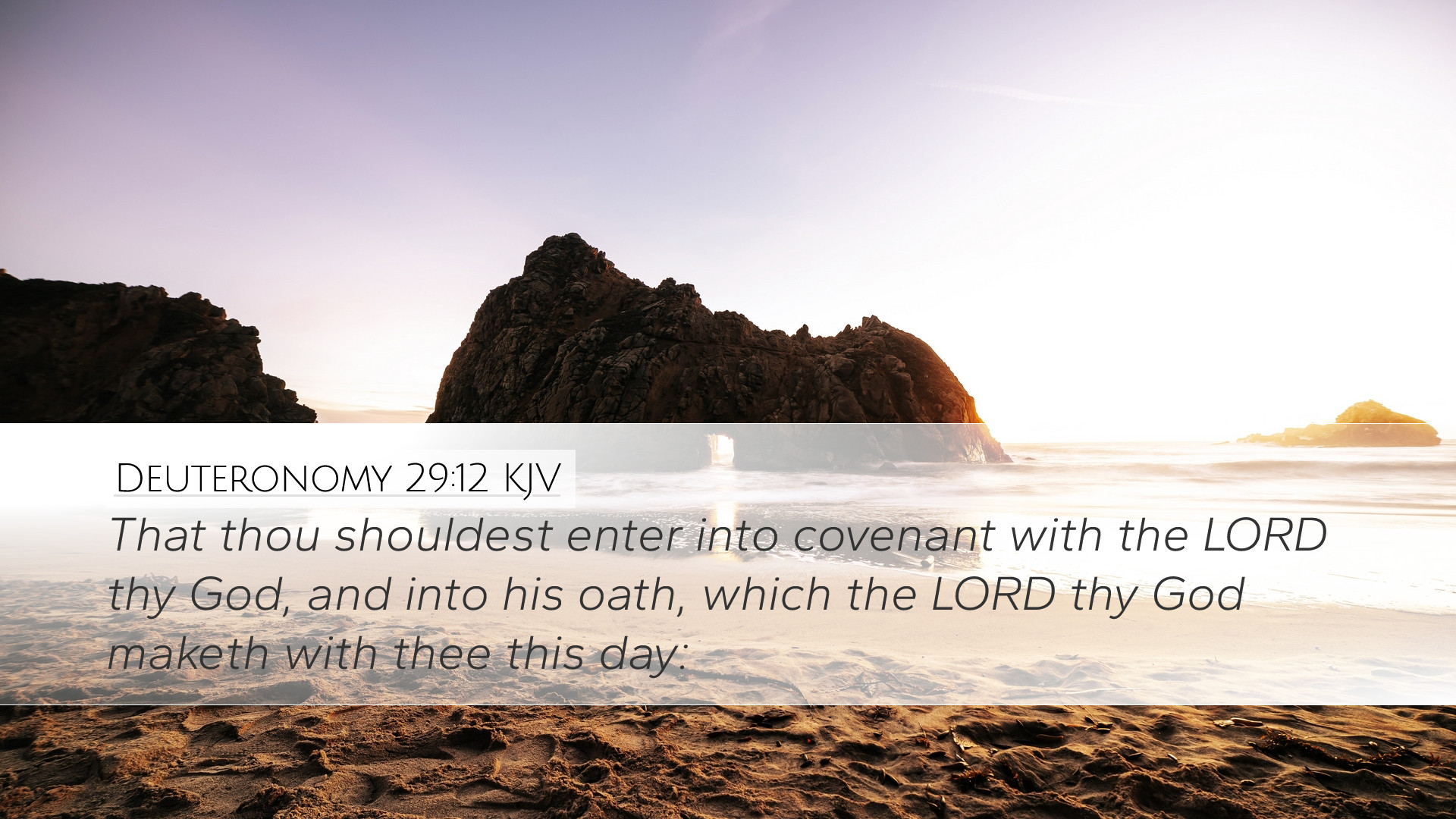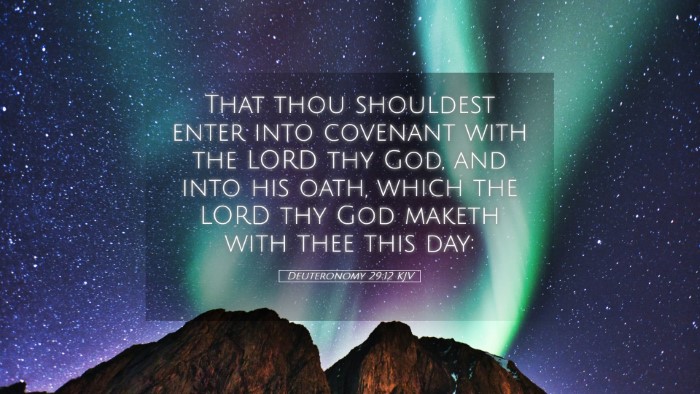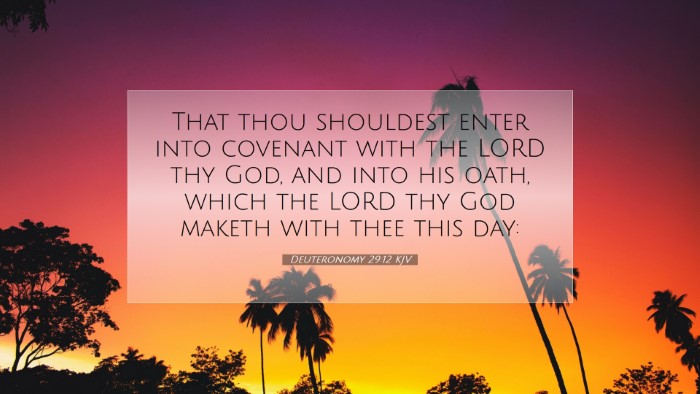Commentary on Deuteronomy 29:12
Verse: "That thou shouldest enter into covenant with the LORD thy God, and into his oath, which the LORD thy God maketh with thee this day."
Introduction
This verse plays a significant role in understanding the relationship between Israel and God, highlighting the concept of covenant—a central theme throughout the Scriptures. In these words, Moses reminds the Israelites of their unique status as the chosen people of God, called into a special relationship with Him. This foundation is important for pastors, students, theologians, and Bible scholars as it outlines the importance of the covenant in Israel's history and God's unfolding plan for humanity.
Contextual Analysis
The book of Deuteronomy stands as a final address from Moses to the Israelites before they enter the Promised Land. The chapter highlights the renewal of the covenant, emphasizing not only the blessings but also the consequences of disobedience. Deuteronomy 29:12 calls the people to recognize the solemnity and significance of their agreement with God.
Matthew Henry's Perspective
Matthew Henry emphasizes the importance of individual participation in the covenant. He points out that the “covenant” refers to a binding agreement that requires not just acknowledgment but also active engagement in keeping its stipulations. According to Henry, entering into a covenant with the Lord implies a commitment to obedience and an acknowledgment of God’s authority over one’s life.
Key Insights from Henry:
- Covenant as Commitment: The covenant bound the people to live according to God's laws and commandments.
- Historical Context: This covenant was made with the generation that had wandered in the wilderness, reflecting a second chance and a new beginning.
- Divine Oath: God's oath is a testament to His faithfulness; He remains true to His promises despite human failings.
Albert Barnes' Commentary
Albert Barnes explores the implications of covenant in familial and societal structures. He notes that a covenant relationship reflects mutual commitments and responsibilities. This verse serves to remind the Israelites that their covenant relationship with God carries both privilege and responsibility. Barnes asserts that understanding this relationship deeply influences how believers today navigate their own relationship with God.
Key Observations from Barnes:
- Constitutional Nature of the Covenant: It establishes a legal basis for the relationship between God and His people.
- Mutual Obligations: The covenant requires not only faith in God but also fidelity to His commandments.
- Importance of Legacy: The covenant transcends generations, impacting the descendants of the Israelites who were present at this event.
Adam Clarke's Exegesis
Adam Clarke provides a scholarly examination of the text, focusing on the linguistic and historical elements of the verse. He elucidates the Hebrew term for "covenant," which carries connotations of a bond that creates community and shared identity among its participants. Clarke interprets this verse as a foundational moment, not only for Israel but for understanding God's relationship with all humanity.
Significant Thoughts from Clarke:
- Linguistic Nuances: The Hebrew term used conveys depth, suggesting a close relationship rather than a mere agreement.
- Historical Realignment: Clarke posits this covenant as pivotal in restoring Israel's relationship with God after their years of wandering.
- God's Unchanging Nature: Clarke emphasizes that the constancy of God's character is what makes this covenant both reliable and reassuring.
Theological Implications
The covenant established in Deuteronomy 29:12 is significant for understanding the nature of God’s promises. It portrays God as not only a creator but also a relational being who desires to be in communion with His people. The verse demonstrates that God takes the initiative in forming relationships with humanity, suggesting a model for believers that is based on commitment, trust, and mutual respect.
This understanding of the covenant can inform present-day theology by highlighting the importance of fidelity in relationships—both divine and human. It serves as a reminder that just as God's covenant with the Israelites had implications for their conduct, so too does the New Covenant in Christ invite believers into a transformed life characterized by grace, commitment, and obedience.
Conclusion
Deuteronomy 29:12 encapsulates a powerful moment in the narrative of God's relationship with His people. Through the insights of Matthew Henry, Albert Barnes, and Adam Clarke, one can appreciate the richness of the covenant theme. As pastors, students, theologians, and Bible scholars reflect on this verse, it becomes evident that understanding covenant is essential not only for grasping Israel’s identity but also for living out the implications of our faith in the contemporary world.


